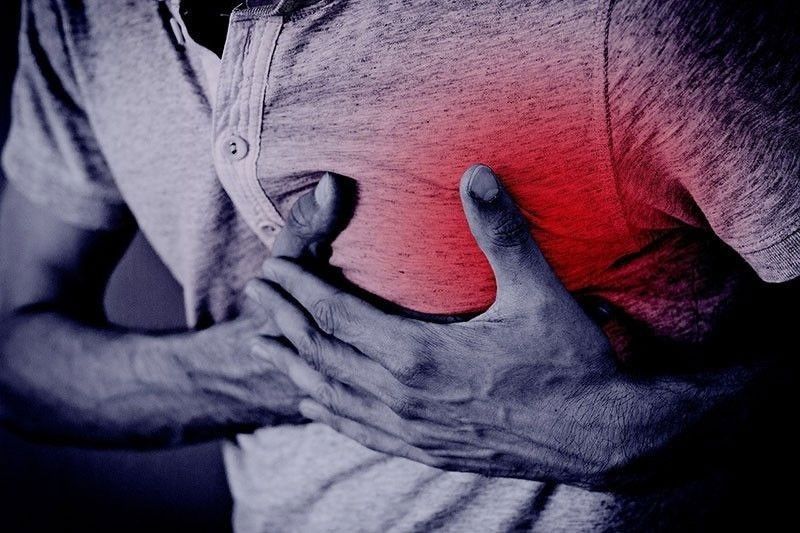According to DOH-7: Heart diseases top killer in Central Visayas

CEBU, Philippines — Cardiovascular diseases remain as Central Visayas' leading cause of death, according to the Department of Health (DOH)-7.
Data from DOH-7 showed an alarming 89 percent mortality rate linked to heart-related illnesses in 2023.
Dr. Joan Antonette R. Albito, head of the Non-Communicable Disease Section (NCDS) of DOH-7, noted that cardiovascular disease ranked first in mortality, followed by pneumonia at around 50 percent.
Aside from heart disease itself, conditions such as myocardial infarction (heart attack) and heart failure also contribute to the region’s top 10 causes of death.
One alarming trend, Albito emphasized, is the increasing number of younger individuals developing heart conditions, with cases reported in people as young as their 30s.
“Like now, dili jud ta makaingon nga ang older generations lang ang magkasakit sa kasing-kasing,” Albito said.
She attributed this trend to modern lifestyle choices, including smoking, excessive alcohol consumption, poor diet, lack of exercise, and high-stress environments.
She particularly noted that call center agents and individuals working in high-pressure environments experience disrupted sleep patterns and chronic stress, which contribute to cardiovascular problems.
Albito stressed that preventive healthcare should be a priority, rather than waiting for symptoms to appear before seeking medical attention.
“The trend is really increasing, and it’s sad kay preventable jud unta siya. If we are only more conscious of our lifestyle, of the food that we eat, sa atong mga activities, and sa atong health-seeking behaviors nga magpa-check-up jud,” she said.
While genetic factors, family history, age, and sex also play a role in heart disease susceptibility, Albito emphasized that most risk factors are controllable.
“It’s important to note nga most of these factors are actually controllable kay we can control our diet habit, exercise, and smoking ug drinking of alcohol,” she added.
Shingles’ hidden threat to heart health
Further, amid the growing concern over cardiovascular diseases, infectious disease experts warn that shingles—a painful viral infection—can significantly increase the risk of heart attack and stroke, especially those aged 50 and above with hypertension and heart disease.
Dr. Shayne Morales, an internal medicine and infectious disease specialist, explained that the risk of a heart attack increases by 68 percent within the first week of shingles, while the risk of stroke rises by 80 percent within the first two weeks.
“The virus reactivation can lead to inflammation in the blood vessels, causing blockages that make it harder for blood to reach the heart and brain,” Morales said during a media roundtable discussion in Cebu for Shingles Awareness Week.
Shingles, or herpes zoster, occurs when the dormant chickenpox virus reactivates due to a weakened immune system caused by aging, stress, or chronic illness. It presents as a painful rash with burning or shock-like sensations and can lead to postherpetic neuralgia (PHN), a nerve pain that can persist for months or even years.
Hypertension also on the rise
With hypertension cases in Cebu surging from 1,098 in early 2023 to 2,901 in the first quarter of 2024, Morales emphasized that more Cebuanos are at risk for serious cardiovascular complications should they develop shingles.
She urged individuals aged 50 and above, particularly those with high blood pressure or diabetes, to be extra cautious.
“The misconception is that the virus is gone once the chickenpox clears, but shingles proves otherwise. Beyond its severe nerve pain, shingles also raises the risk of cardiovascular complications,” she warned.
According to GSK, a global biopharma company, 18.9 million Filipinos aged 50 and above are at increased risk of developing shingles. More than 90 percent of adults carry the dormant virus, and 1 in 3 adults will experience shingles in their lifetime.
Dr. Morales stressed the importance of regular wellness checks to monitor blood pressure, heart health, and overall wellness.
She advised individuals to take preventive measures, including maintaining a healthy lifestyle, managing chronic conditions like hypertension, diabetes, and heart disease. She also advised to consult doctors early to discuss possible preventive options, including vaccinations.
“For seniors and those with chronic conditions, the risk is even higher,” Morales stated, as she and Albito both highlighted that awareness, early detection, and preventive measures can help reduce the risk of life-threatening cardiovascular events.
“With heart disease and its complications being preventable, the key is for everyone to be more proactive about their health,” Albito said.
Philhealth coverage
To ease the financial burden of heart disease treatment, PhilHealth has increased its Z Benefits Package for open-heart surgeries and introduced a new package for heart valve repair and replacement.
Coverage for major procedures now ranges from P614,000 to P960,000, while the new heart valve package offers P642,000 to P810,000 in benefits.
Additionally, cardiac rehabilitation support has increased, with patients now eligible for up to P15,000 in benefits. Percutaneous coronary intervention (PCI), a non-surgical procedure to clear blocked arteries, is now covered up to P523,853, while the case rate for fibrinolysis has been raised to P133,500.
PhilHealth also improved its benefit package for emergency medical services, including coordinated referral and inter-facility transfers, which now amounts to P21,900. — (FREEMAN)
- Latest




















